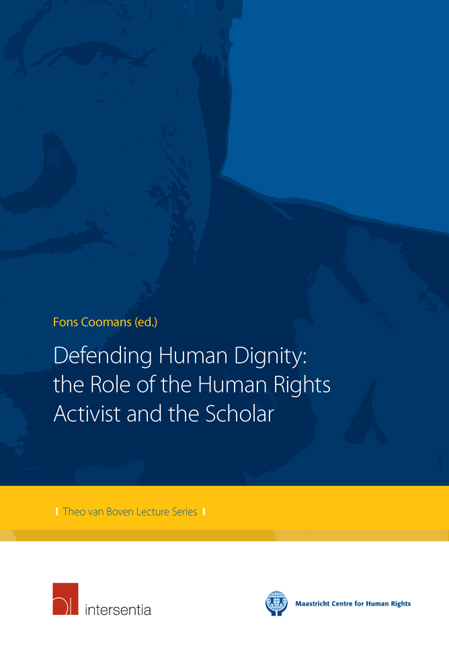Book contents
- Frontmatter
- Contents
- Miscellaneous Frontmatter
- 5th Annual Theo van Boven Lecture
- Defending Rights: Human Rights Defenders in the Front Line
- 6th Annual Theo van Boven Lecture
- Slavery and the Human Rights Scholars
- The Politics of Human Rights: Slavery and the Sustainable Development Goals
- Miscellaneous Endmatter
The Politics of Human Rights: Slavery and the Sustainable Development Goals
Published online by Cambridge University Press: 27 September 2018
- Frontmatter
- Contents
- Miscellaneous Frontmatter
- 5th Annual Theo van Boven Lecture
- Defending Rights: Human Rights Defenders in the Front Line
- 6th Annual Theo van Boven Lecture
- Slavery and the Human Rights Scholars
- The Politics of Human Rights: Slavery and the Sustainable Development Goals
- Miscellaneous Endmatter
Summary
First of all many thanks for having me. It is a great honour and pleasure to be here. Though it is regrettable that we meet here at the end of a year which I fear must be judged one of Europe's most disgraceful in recent memory. 2015 has been marked first by carnage off our Southern shores brought about in no small part by the failure of European leaders to establish safe migration routes for refugees, and by the slaughter on the streets of Paris, by fellow Europeans inspired by the slave states of Islamic State and Saudi Arabia, from whose atrocities so many refugees are fleeing. More hopefully, this is also the year that the United Nations adopted the Sustainable Development Goals, which may be regarded as an effort of will to express the best of our human ideals in a year when much of the most craven of human behaviour has been on display. The Sustainable Development Goals represent a considerable progression on the Millennium Development Goals that preceded them in that they are both more comprehensive and more rooted in a rights based approach. The absence of fundamental rights related issues, such as slavery eradication, ending of caste based apartheid or advancement of the rule of law, meant that the Millennium Development Goals conveyed the impression that the ending of poverty was merely a technical challenge that required, in the main, the transfer of things to people who did not have things. But the ending of poverty is also a political issue. Because often the reason that people don't have things is that they are excluded from the processes of development by more powerful actors. This is most clearly seen when considering the issue of slavery. Those who are enslaved are drawn from communities which are systematically excluded from power to enable their control by those who are more privileged. They include Dalits and Adivasi in South Asia, migrants in Europe, the Middle East, the Americas, South East Asia and West Africa, and women and children everywhere. Prejudice and discrimination against certain groups on arbitrary bases such as caste, ethnicity, gender and religion is still frequently used as a basis upon which the more powerful exclude the more vulnerable from the processes of development. By doing so those same mechanisms of social exclusion also render those discriminated against more vulnerable to slavery.
- Type
- Chapter
- Information
- Defending Human DignityThe Role of the Human Rights Activist and the Scholar, pp. 41 - 47Publisher: IntersentiaPrint publication year: 2016

